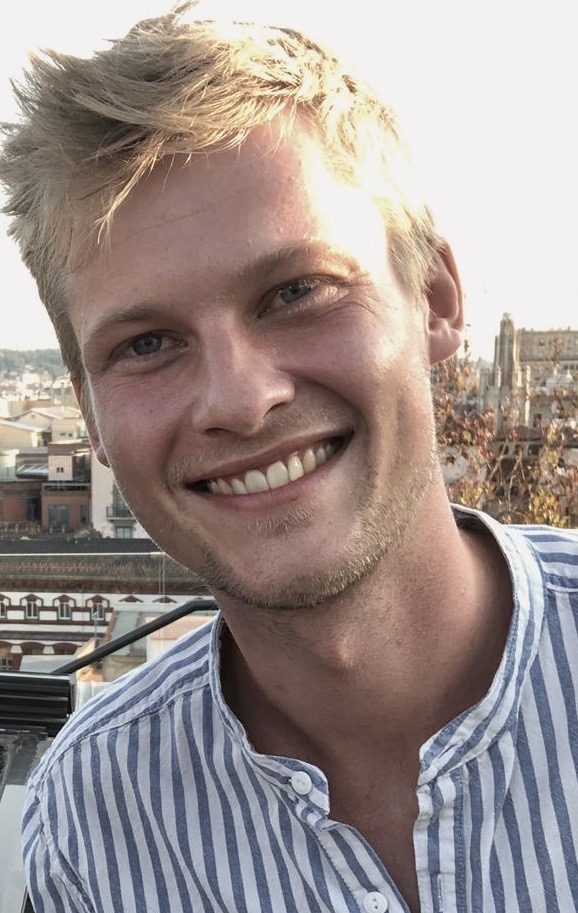For anyone using Facebook, Instagram or other Social Media: have you ever been bothered by ads popping up that completely match your interests? This is called targeted advertising and is based on Big Data and Artificial Intelligence. I don’t want to demonize it. It is actually quite fascinating. As with many things in the world, you don’t make them better by devaluing and wildly criticizing them. However, understanding them and providing ideas about how to make them more beneficial is a much more promising approach – also called constructive criticism. Therefore, let us see if we can bring “targeted advertising” together with something that is commonly regarded as beneficial and relevant in global health: donating.
You might expect growing global solidarity among the people that experience the current state of lockdown, which is to some extent similar all over the world. Many people in this crisis have become global-health-sensitized and want to help, be philanthropic, contribute, and consider donating. Usually donating is associated with money. However, people might be in a state of existential fear and prefer to save money for anticipated hardships. Or they simply don’t have any financial resources to give away.
Many people in this crisis have become global-health-sensitized and want to help, be philanthropic, contribute, and consider donating. Usually donating is associated with money.
What else can you donate then?
If you look at the definition, it doesn’t limit itself to money. Of course, you can donate objects, as it has been done with face masks, for example. Or you can donate your time and workforce, as it has been done by millions of volunteers all over the world. You can also donate your emotional support to people who can’t cope as well as you in this potentially overwhelming situation.
You can also donate data – a difficult step if you are concerned about your privacy, which is important. However, the exponential impact of big data and artificial intelligence might make you consider that by donating your data, you can indirectly shape the world as you envision it. COVID-19 studies using AI are already functioning this way. One example is people who donate their cough samples to find an AI-based algorithm to detect COVID-19 cases.
You can also donate intellectual property.
This sounds scary. If somebody suggested this to me, I would google it first. I would come across the World Intellectual Property Organization. This sounds equally intimidating, especially for people outside of the scientific cosmos. This state of fear pretty much reflects how many people feel about sharing their ideas in the research and innovation systems as they are constructed today.
You have to acknowledge that, at the moment, many scientific institutions are sharing intellectual property more quickly than ever and hackathons, where people share their ideas to innovate together, are taking part all over the world. However, I think that there is still so much neglected creative energy in every one of us that could be used for the greater good.
And this is where social media comes in – arguably the best medium to target creative individuals in this day and age. If you look at your “Insta-Stories” you might get the feeling that the COVID-19 crisis has made people more creative than ever. “How do you come up with this?” is a question you might ask yourself by watching yet another hilarious TikTok video.
This is a hypothesis to be tested, but in creative minds you can often find great ideas and thoughts such as “If I were them, I would do that”, but an unwillingness to share because they either don’t see the financial benefits or and don’t want others to be recognized for ideas that didn’t actually come from them. The fear that an idea might be “stolen” seems to be a common state of mind for creative professionals. I have also come across people that have tons of amazing ideas, but since they can’t put all of them into practice at once, they rather keep them for themselves for the above-mentioned reasons – this can leave you quite frustrated.
How could we change this? How about contemplating a culture of “creative donating” and “creative volunteering”?
Let’s first simplify it. It’s just about authorizing the use of your ideas, the outcome of your very own mental labour, and, thus, becoming sort of a “creative volunteer”.
How about an advertisement for a start-up or an NGO from a low-or middle-income country – in your field of interest and expertise – popping up, asking for your ideas? When taking a guess, you might think that social media have all the tools to set this up, using the principle of targeted advertising. And if you don’t want to be a “silent creative donor”? Well, surely a mechanism could be found– after all, social media is a lot about social recognition, giving “likes” and tagging friends. You could also contemplate the concept of AI-based mentor-mentee-matching applied to the global health sector. In all of these approaches, however, it must be ensured that the initiative comes from low-or middle-income countries themselves to prevent some sort of uncontrolled digital white-saviorism.
Moreover, since the “creative donor” would donate intellectual property to entities that are situated in a completely different market and are most likely not direct competitors, the mechanism would make the donors even less hesitant about providing valuable input. The risk of giving anyone an “edge” is minimized and therefore seems compatible with even the most individualistic research and innovation systems.
It might need the expertise of social scientists (e.g. digital anthropologists), neuroscientists and philosophers to assess if this approach is at all compatible with human behavior. Are social media users empathic altruists and philanthropists? And also: do social media live up to their corporate social responsibilities? Acknowledging the discovery of mirror neurons and contemplating the concept of empathic civilization might be the best starting point for finding an answer to these questions.
To which extent have the global health sector and the social movement of effective altruism embraced the opportunities provided by social media? The interconnectedness across continents offers chances – and it is on the generation of digital natives to think about ways on how to use them in Global Health and stimulate development, self-sustainability, and self-governance particularly in countries with limited research and innovation capacities.




0 Comments